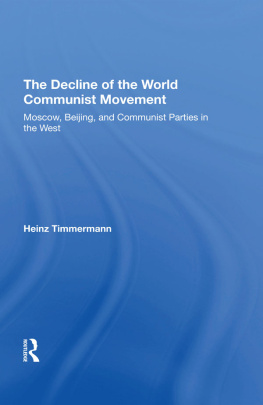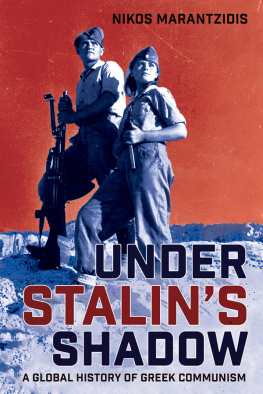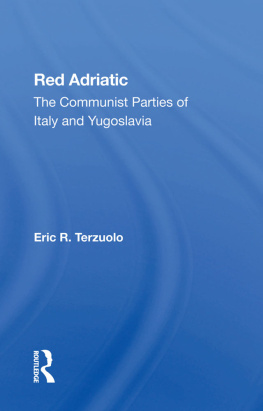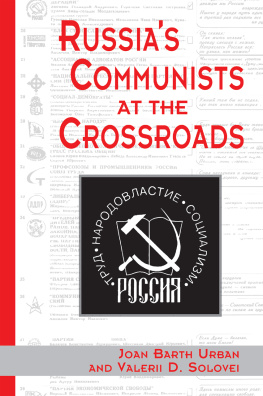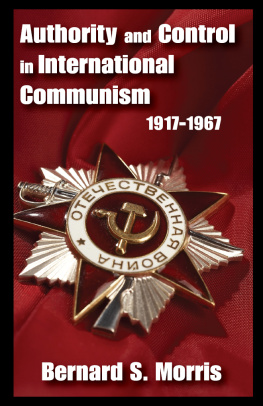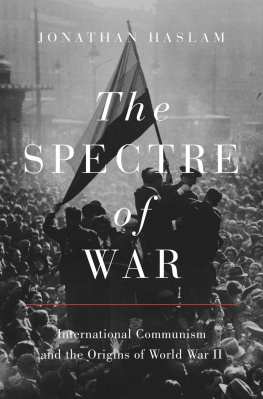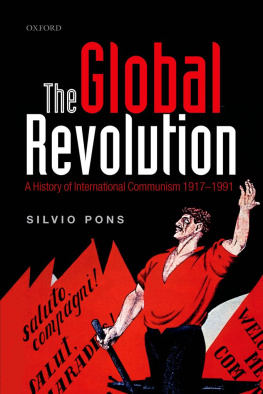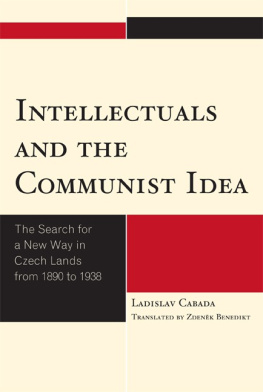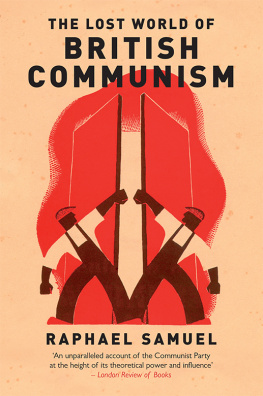About the Book and Author
International Communism today is split on a number of ideological and political issues and is incapable of the kind of unified action implied by the term movement. So argues Heinz Timmermann in this assessment of the current state of world Communism.
Dr. Timmermann discusses the historical concept of a world Communist movement in connection with the USSR and China. Focusing on Communism in the West, he examines such diverse groups as the Communist parties in Italy, France, Portugal, Cyprus, Chile, and Japan. Communist parties in the West are increasingly adjusting their policies to better fit their own cultures, and the author links this independence to the emphasis the Soviet Unions Communist Party has been placing on the specifically Russian character of the October Revolution and Soviet state interests.
Apparently, Moscow is now showing some flexibility in its response to tendencies toward differentiation and pluralism within the system of Communist parties. Gorbachev is less concerned with ideological orthodoxy than with Communists effectively supporting Soviet foreign policy. The author argues that by acceding to the concept of unity in diversity, Gorbachev is signaling that the Soviet leadership is willing to look beyond the myth of a world Communist movement.
Dr. Heinz Timmermann has been on the staff of the Federal Institute for East European and International Studies in Cologne since 1969.
Published in cooperation with the Federal Institute for East European and International Studies, Cologne
First published 1987 by Westview Press
Published 2019 by Routledge
52 Vanderbilt Avenue, New York, NY 10017
2 Park Square, Milton Park, Abingdon, Oxon OX14 4RN
Routledge is an imprint of the Taylor & Francis Group, an informa business
Copyright 1987 Taylor & Francis
All rights reserved. No part of this book may be reprinted or reproduced or utilised in any form or by any electronic, mechanical, or other means, now known or hereafter invented, including photocopying and recording, or in any information storage or retrieval system, without permission in writing from the publishers.
Notice:
Product or corporate names may be trademarks or registered trademarks, and are used only for identification and explanation without intent to infringe.
Library of Congress Cataloging-in-Publication Data
Timmermann, Heinz.
The decline of the world Communist movement.
(A Westview special study)
Bibliography: p.
Includes index.
1. Communism1945 . 2. Communist parties.
3. Soviet Union Foreign relations1945
4. ChinaForeign relations1949 . I. Title.
II. Series.
HX44.T537 1987 324.1 87-6263
ISBN 13: 978-0-367-29119-8 (hbk)
Richard Lowenthal
The political idea of a world Communist movement is older than the creation of the Soviet power: it was conceived during World War I by Vladimir Ilyich Lenin when he was in Zurich waiting for an expected series of Communist revolutions to end the war. He had no way of knowing which revolution would break out first. After returning home and founding the Soviet state with his Communist party, he still expected revolutions in Europe. He thought Germany would be the next nation to revolt and expressed his belief that revolutionary Russia would have to learn from the revolutionary West. Lenin was a great Russian, but not a Great Russian, as his successors were to be.
Lenins European hopes failed after the Hungarian revolution was crushed with the help of foreign troops, the Munich revolt was squashed, and Soviet forces were defeated when they did not stop after repelling a Polish attack, but followed orders and tried to conquer Poland in the name of the Soviet revolution. Lenin then understood that the immediate postwar revolutionary prospects were over and concluded that for an indefinite time a world Communist movement must be organized on Soviet principles. In fact, the principles had already been approved at the second congress of the Communist International in August 1920, even while Soviet troops were still trying to conquer Warsaw.
It is true that Lenin had some doubts in the last years of his life. At the fourth congress of the International in 1922the last he visited--he worried that the principles approved at the second congress had been too Russian to be understood by the European comrades. In one of his very last papers he stated that Russia, China, India, etc. representing the majority of mankind, would ultimately ensure the worldwide victory of Communism. (The plan for an armed revolution in Germany in the fall of 1923, which was stopped just in time by the leader of the German Communists, was conceived when Lenin was already too ill to know of it.) What thus remained when Lenin died was a strict organization for world Communism--without a political concept.
Stalin, who had in fact taken over before Lenin died, was a Georgian and not a Russian, but he was a Great Russian. I mean by this that he had a fundamentally different concept of the Soviet revolution from Lenins. He did not believe that Soviet Communism could only be achieved with the cooperation of the people of more advanced countries but that it could and must be achieved by the extreme effort of the Russian people--and in his eyes, it eventually was achieved in this way. Of course, this was a very different kind of Communism from that which Lenin, let alone Marx, had had in mind. But it had the double advantage of existing, and existing as Stalins work, of already commanding the belief of millions of people inside Russia, and even more outside. Yet I am not suggesting that Stalin only cared for his own power. Of course, he believed in power and was utterly ruthless, but he also believed that his ruthlessness, with its hecatombs of victims, was creating a kind of Communist greatness for Russia. And by the end of World War II large numbers of Russians and Westerners, forgetting the road Stalin had taken before Hitlers attack, agreed with him.
In the long pre-war period of Stalins rule, from 1924 to 1941, no Communist party came to power in any country, and only two of them made serious efforts in that direction: Yugoslavia and China, the same two which later succeeded in establishing Communist governments, only to break with the Soviet Union still later. Stalin was not urging them to fight for power--he was urging them to sing his praises and to support policies in their countries that would be useful to the Soviet Union. This was the rationale behind his effort to get the Chinese Communists to cooperate modestly with Chiang Kai-shek when he was fighting to create a more modern China and behind his decision, after Chiang had moved against them, to make them concentrate on resistance to Japan--however far away Japan might be. This was also the rationale for making the German Communists turn against the Social Democrats, calling them social fascists, because the SPD favored better relations between Germany and France while Stalin relied on the German military to be pro-Soviet.
During the early part of the war, Stalin was still ordering French and British Communists to oppose their governments resistance to Hitler and instructing the exiled German Communists to attack an alleged capitalist clique opposing Hitler. Of course, he turned them around when Hitler turned against him. From then on, Communists in all the occupied Western countries were instructed to support and if possible lead the resistance, working both for broad cooperation and for special military groups of their own. Even the Yugoslav Communists were urged--without success--to cooperate with Serb nationalists, who had been arresting them for years. Further east, however, where Poland had only recently been occupied (as agreed) by Hitlers and Stalins troops, it was necessary to create pro-Soviet Polish units in the Soviet Union and send them back to what had been their homeland, or rather a reduced part of it.

